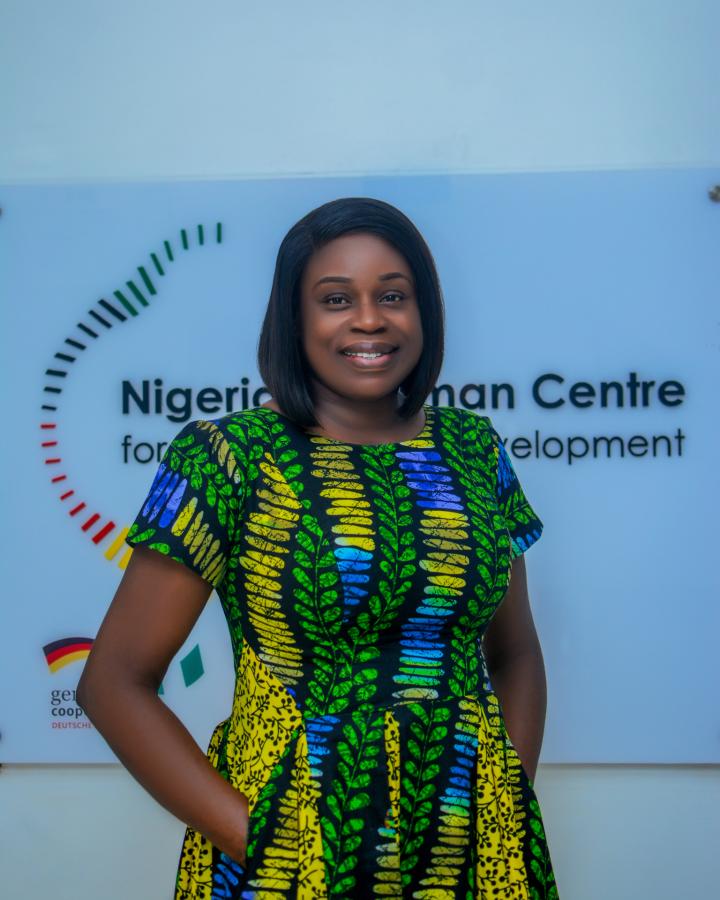The Nigerian-German Centre for Migration and Development (NGC) focuses on reaching women with its service offerings. Eseosa Okuku explains how the NGC does this and why it is so important.
Why do you place a special focus on women at the NGC?
In Nigeria, there is a saying that when you train a woman, you train the community or nation. Women share their knowledge, so their empowerment is important for achieving gender equality. It paves the way to greater equality in society. But women still face many barriers to economic inclusion in Nigeria. These include cultural and social norms, discrimination and limited access to education and financial services. We also focus on persons living with disabilities (PWDs) and internally displaced persons (IDPs).
Around 45% of your clients are women. How do you reach them?
It is important that we offer programmes that are tailored to the needs of women. We provide personal counselling and ask women about their goals. In addition to specialised training, we also offer psychosocial support, especially for women who have been victims of human trafficking or domestic violence.
In Nigeria, most of the time the responsibility of taking care of children falls on women. That is why we offer childcare so that mothers can take part in our training programmes. They are designed to suit women’s circumstances. For example, there are breaks so that mothers can do the school run.
Clients can also learn in the local language they understand. This is crucial in reaching people with very different levels of education.




